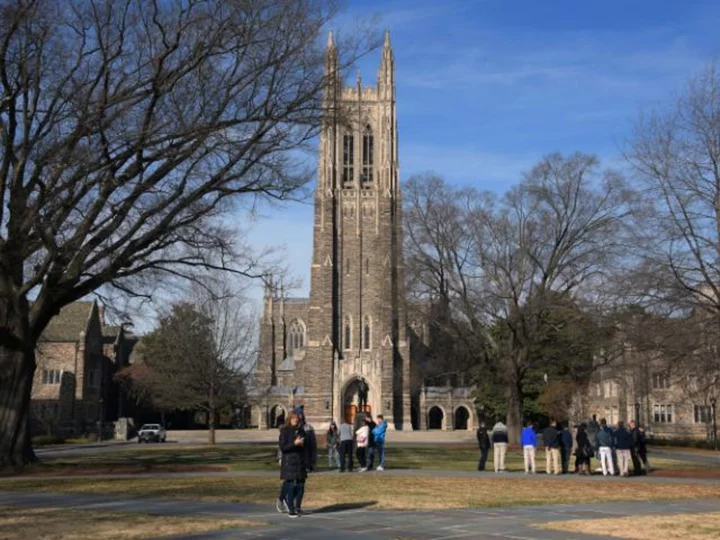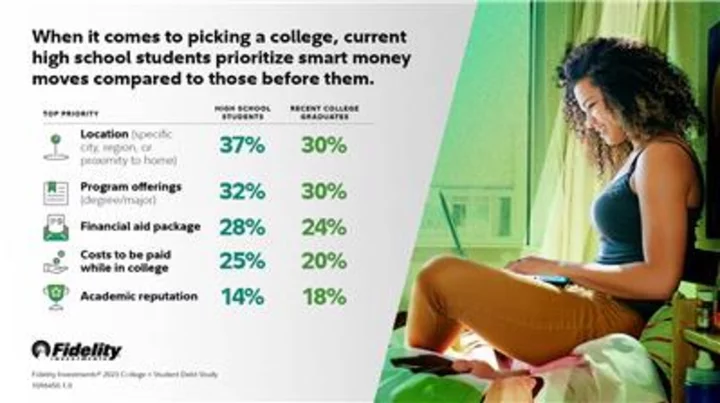Hundreds of thousands of teachers are protesting in South Korea after the suspected suicide of a teacher that was widely blamed on the burden on educators in a country notorious for its high-pressure education system.
Angry teachers say they face overly harsh demands and even harassment from aggrieved parents, and are calling for legal reform and greater protections.
Up to 200,000 protesters participated in a rally on Saturday, according to the Korean Federation of Teachers' Associations, citing event organizers. And on Monday, an estimated 50,000 teachers stopped work and gathered in the capital to commemorate the deceased teacher, according to organizers -- despite authorities' initial warnings that striking would be considered "illegal."
The teacher had taught first grade homeroom at the Seoi elementary school in Seoul, and died on campus on July 18, according to an August announcement from the country's Education Ministry and the Seoul Metropolitan Office of Education, who conducted an investigation into the death. They did not name the teacher.
Two days after her death, the metropolitan education office superintendent, Cho Hee-yeon, said the teacher had made "the unfortunate decision to take an extreme choice," a common euphemism in South Korea for suicide.
Cho said police were still investigating, but acknowledged "the reality that teachers' legitimate educational activities are not protected," and urged "special measures" to provide teachers more legal and institutional protections.
After launching an investigation, education authorities addressed several rumors that had circulated on social media, including claims that a dispute between two students had played a factor in the teacher's death.
The parents of both students involved had attended a meeting with the teacher, the education vice minister said in August, when authorities announced their findings. The teacher had received "multiple phone calls" from one parent, and had felt "uncomfortable and anxious about how the parent found out their personal mobile number," he said.
However, the vice minister added, it was not yet clear whether the teacher had faced any "verbal violence" from the parent.
"Based on the teacher's diary and results of interviews with their colleagues, the (investigation) found out that the teacher had a problematic student and was having difficulties running the homeroom, and the teacher had a lot of work as it was the beginning of the semester," he said.
Authorities did not provide further details including the teacher's cause of death or what led up to it.
Teachers targeted
The death served as a tipping point for many teachers and educational staff across South Korea who have long complained about feeling unable to discipline their students for fear of retribution. Several other recent reports of teacher suicides have fueled that growing anger, with several weeks of ongoing protests before Monday's strike.
Government data shows 100 public school teachers in South Korea -- mostly elementary school teachers -- killed themselves from January 2018 to June 2023.
The data does not specify what factors contributed to their deaths, and it is unclear how many of those suicides were linked to the individuals' jobs. But many in the education community have blamed a controversial child abuse law that was introduced in 2014.
Under the law, anybody who suspects a case of child abuse can report it to the authorities without needing to provide evidence. Authorities may then investigate the claim, including visiting the alleged site of abuse -- in this case the schools -- and questioning relevant parties.
Teachers say they can be unfairly targeted by parents who feel their child has been slighted -- at times endangering their jobs.
"The current child abuse prevention act restricts the teaching and guidance of teachers in the classroom," said one woman participating in the strike on Monday, who CNN is not naming for privacy reasons.
"Of course, the majority of teachers and parents are good, but some parents abuse this law and sue teachers for child abuse," said the woman, who said she was an elementary school teacher.
Another woman at the strike, who also declined to be named, said she had been teaching for 10 years.
"There are so many difficulties in teaching children in the classroom because teachers are not given authority," she told CNN. "Although the Child Abuse Prevention Act was created with good intentions to protect children, it is subject to very vague standards."
She added that many teachers are under heavy stress for fear of being reported by angry parents, even for issuing minor reprimands to students or other disciplinary actions in the classroom.
Authorities have tried to appease teachers, acknowledging their complaints.
Cho, the Seoul education office superintendent, urged teachers not to turn Monday into a "day of chaos." In an online statement, he proposed establishing a consultation body that can "find out the truth behind the death of the teacher at Seoi elementary school" and protect students' right to education while "coming together to find a way to commemorate the teacher who unfortunately passed away."
Education Minister Lee Joo-ho warned last week that the planned strike was an "illegal collective action" that infringed on students' right to education. But he adopted a more conciliatory tone in a separate statement on Sunday, saying he had listened to "teachers' desperate cries," and that he would not hold any participants responsible during the Monday strike.
The ministry "has prepared a comprehensive plan to restore and strengthen the protection of teaching rights ... and to improve the unreasonable system that has caused them," Lee wrote, adding that the ministry has asked the government to "quickly legislate laws ... so that our teachers' reasonable educational activities could be distinguished from child abuse crimes."
Even President Yoon Suk Yeol has weighed in, telling his advisors in a meeting on Monday, "We should take the voices raised by teachers last weekend seriously, and make every effort to establish teaching authority and normalize the educational field," according to a statement from the presidential spokesperson's office.
Call for change
But protesters and teachers say they won't be satisfied until the child abuse law is amended. "We will protect (the teachers) and make changes so that not one more teacher chooses to take their life," said one of the protest groups, Everyone Together As One, according to Reuters.
Outside the school where the teacher died, mourners on Monday placed funeral wreaths and white flowers, and wrote messages on a wall of Post-It notes.
The protests and focus on teacher suicides reflect broader mental health issues in South Korea and longstanding criticisms of its grueling education system.
South Korea has the highest suicide rate among OECD nations, with that rate increasing among teenagers and young adults in their 20s, according to the country's health ministry.
Many teenagers cite education as their biggest worry, with most Korean students going straight from regular school to extra tutoring at private cram schools every day, before continuing to study by themselves until late at night.
That stress extends to parents, many of whom start pouring money into their children's educations from the time they can walk. In 2022, South Koreans spent a total of 26 trillion won (almost $20 billion) on private education, according to the Ministry of Education.
And in a survey this year by the Korean Federation of Teachers' Associations, which included 6,751 respondents working as teachers from kindergarten to universities across the country, only 23.6% expressed satisfaction with their teaching jobs -- an all-time low, having fallen from nearly 68% in 2007, the group said.









